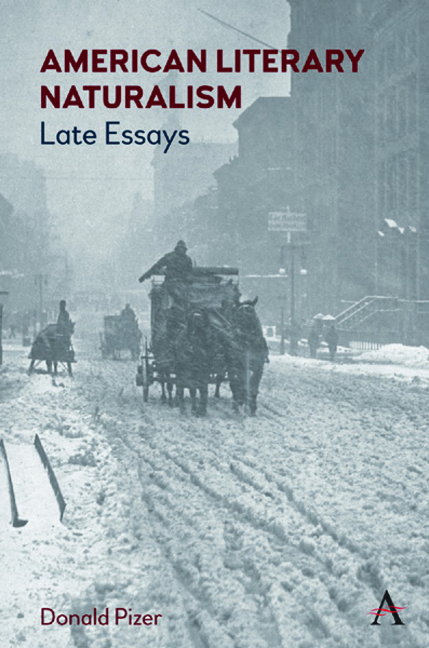1 - American Naturalism: A Primer
Published online by Cambridge University Press: 22 February 2022
Summary
From its late nineteenth-century beginnings, critics of American literary naturalism have disagreed, often violently, about its nature and value. Was the movement an exotic offshoot of a decadent French culture or was it a truthful response, after a quarter century of “lying” by an older generation of writers, to the actual conditions of late nineteenth-century American life? Did naturalism posit a human condition in which the individual was a powerless cipher at the mercy of natural forces, including his own animal brutishness, or did it permit the individual to retain at least vestiges of both free will and human dignity? And finally, was naturalism the last gasp of a naive nineteenth-century belief that experience could be objectively represented or did it look forward, in its significant components of the impressionistic and the surreal, to the nonrepresentational aesthetic of twentieth-century literary modernism? These issues have been in dispute for over a century. What is indisputable, however, is that a number of American writers, from approximately the early 1890s to the opening of the First World War, are conventionally identified as “naturalists.” This identification began in their own time either because a writer openly expressed enthusiasm for the work of Emile Zola, the principal theoretician and exponent of French naturalism (Frank Norris, e.g., occasionally playfully signed letters “The Boy Zola”) or because a writer's subject matter of alcoholism, sexual passion, and personal disintegration closely resembled that of Zola (as was true of Stephen Crane and Theodore Dreiser). The term “naturalism,” whether broadly applied to the major new writing of 1890–1910 or used more pointedly to designate the nature of particular works during this period, has stuck, despite the fact that for much of its history the term has also often served as a sign of disapproval and opprobrium. To describe a novel or play as naturalistic was to indirectly accuse its writer of sensationalistic intent, shallow thinking, and inept artistry. Nevertheless, when used with sufficient care and discrimination, the term still serves the useful purpose of suggesting that a group of writers participated in similar ways in a specific cultural moment and that an attempt to describe these ways may cast light both upon their work and the moment.
The leading American naturalists are traditionally held to be Frank Norris (1870–1902), Stephen Crane (1871–1900), and Theodore Dreiser (1871–1945).
- Type
- Chapter
- Information
- American Literary NaturalismLate Essays, pp. 3 - 16Publisher: Anthem PressPrint publication year: 2020

